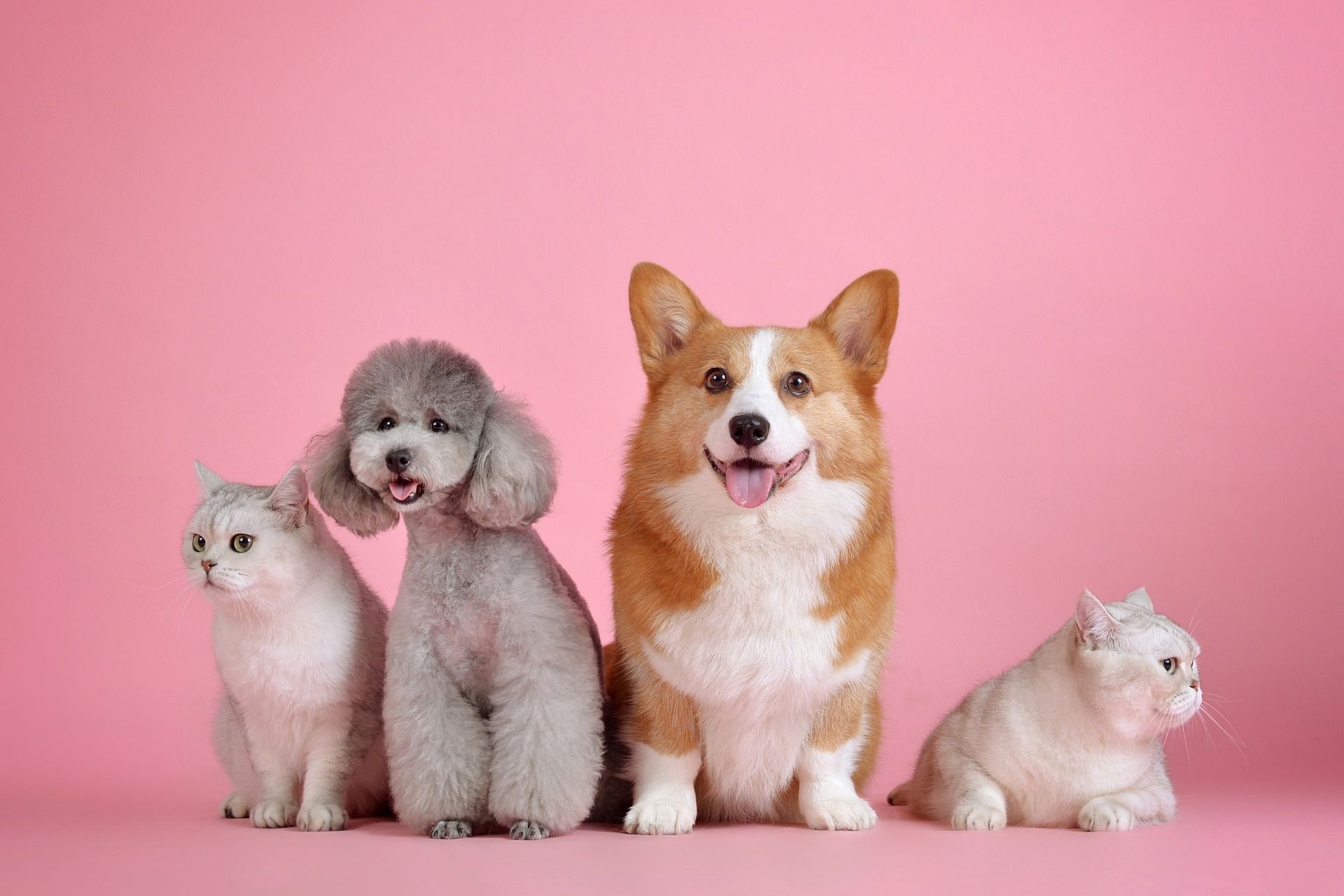Protect Your Furry Friend: A Comprehensive Guide to Pet Insurance
Protect Your Furry Friend: A Comprehensive Guide to Pet Insurance

Pets are more than just animals; they are beloved members of the family. As pet owners, we want to provide the best possible care for our furry friends, but the cost of veterinary care can be a significant financial burden. This is where pet insurance comes in.
Pet insurance is a type of insurance policy designed to help pet owners manage the cost of veterinary care for their pets. It covers the cost of medical procedures, treatments, and medications for unexpected injuries or illnesses that may arise in our furry friends. Much like human health insurance, pet insurance can help pet owners alleviate the financial burden of providing the best possible care for their pets.
The importance of pet insurance cannot be overstated. Many pet owners may not realize the high cost of veterinary care until they are faced with an unexpected medical emergency. A single visit to the vet can cost hundreds or even thousands of dollars, depending on the type of treatment required. In some cases, pet owners may even have to make the difficult decision to forego necessary treatment for their pets due to financial constraints.
Pet insurance can help alleviate these financial concerns and ensure that pet owners can provide their furry friends with the best possible care. With a pet insurance policy, pet owners can rest assured that they can afford to take their pets to the vet for any necessary medical treatment without worrying about the cost.
The purpose of this article is to provide a comprehensive understanding of pet insurance, its benefits, and how to choose the right policy for your pet. We will explore the different types of pet insurance policies available, their coverage options, exclusions and limitations, and how to select the best policy for your pet's needs.
In this article, we will explore in detail what pet insurance is, how it works, the benefits it provides, and how to choose the right policy for your pet. By the end of this article, you'll have a clear understanding of pet insurance and how it can help you manage your pet's health care costs.
What is pet insurance?
Pet insurance is a type of insurance policy that covers the cost of medical care for pets. This can include routine checkups, emergency care, surgeries, and prescription medications. Essentially, pet insurance works in a similar way to any other insurance policy, providing financial protection for unforeseen and often expensive medical expenses that can arise when caring for a pet.
There are several different types of pet insurance policies available, each with its own benefits and limitations. The most common types of pet insurance policies are accident-only coverage, illness coverage, and comprehensive coverage.
- Accident-only coverage policies are designed to cover the cost of veterinary care associated with accidents and injuries, such as broken bones or poisoning. These policies typically do not cover illnesses or other medical conditions, making them a good choice for pet owners who are primarily concerned with protecting their pets from accidental injury.
- Illness coverage policies are designed to cover the cost of veterinary care for illnesses and medical conditions, such as allergies or infections. These policies typically do not cover accidents or injuries, making them a good choice for pet owners who are primarily concerned with protecting their pets from illness.
- Comprehensive coverage policies provide the most comprehensive coverage available for pets. These policies cover the cost of veterinary care for both accidents and illnesses, as well as routine care and preventative treatments like vaccinations and checkups. This makes them a good choice for pet owners who want complete coverage for their pets and want to ensure that they are protected from both accidents and illnesses.
In addition to these three primary types of pet insurance policies, there are also a variety of add-on coverage options available. These can include coverage for things like dental care, hereditary and congenital conditions, and alternative therapies like acupuncture or chiropractic care.
It is important to note that pet insurance policies often have exclusions and limitations that can affect their coverage. For example, many policies may not cover pre-existing medical conditions or genetic disorders, and some may have limits on the total amount of coverage provided per year or per incident. It is important to read and understand the terms and conditions of any pet insurance policy before purchasing it to ensure that you are getting the coverage that you need for your pet.
In addition to the different types of pet insurance policies available, there are a number of benefits to purchasing a pet insurance policy for your furry friend. One of the biggest benefits of pet insurance is the peace of mind that it provides. By knowing that your pet is protected in the event of an unexpected illness or injury, you can rest easy knowing that you won't be faced with a difficult decision about whether to pay for expensive medical care or forgo treatment altogether.
Another benefit of pet insurance is that it can help you budget for the cost of veterinary care. Many pet insurance policies have a set monthly premium, making it easy to budget for the cost of care over time. This can be especially helpful for pet owners who have multiple pets or who are on a fixed income.
Pet insurance can also help you save money on the cost of veterinary care. Even routine checkups and preventative care can be expensive, and the cost of emergency medical treatment can quickly add up. With a pet insurance policy in place, you can rest assured that you won't be faced with unexpected expenses that can put a strain on your finances.
In addition to providing financial protection for your pet, pet insurance can also help you access high-quality veterinary care. Many pet insurance policies have partnerships with veterinary clinics and hospitals, making it easier to find and access top-quality care for your furry friend. This can be especially helpful if you live in a rural area or if your pet requires specialized medical care that is not available at your local veterinary clinic.
Another benefit of pet insurance is that it can help you avoid making difficult decisions about your pet's care. When faced with an unexpected illness or injury, many pet owners are forced to make difficult decisions about their pet's care based on financial constraints. With a pet insurance policy in place, you can rest assured that you will be able to provide the care that your pet needs without worrying about the associated costs.
Ultimately, pet insurance can be a valuable investment for pet owners who want to ensure that their furry friends receive the best possible care. With a pet insurance policy in place, you can rest assured that you will be able to provide your pet with the care they need, without worrying about the cost. Whether you choose an accident-only policy, an illness coverage policy, or a comprehensive policy that covers both, the peace of mind that comes with pet insurance is well worth the investment. So why not consider getting a pet insurance policy for your furry friend today?
How does pet insurance work?
Now that we've covered the benefits of pet insurance, let's take a closer look at how it works. Pet insurance policies can vary widely in terms of coverage, exclusions, and premiums, so it's important to carefully review the terms of any policy before signing up. Here are some key things to keep in mind when evaluating pet insurance policies:
A. Coverage options: Most pet insurance policies offer a range of coverage options, including accident-only policies, illness coverage, and comprehensive policies that cover both accidents and illnesses. Some policies may also offer coverage for routine checkups, preventative care, and other services.
B. Exclusions and limitations: Like any insurance policy, pet insurance policies may include exclusions and limitations that can impact coverage. For example, some policies may exclude coverage for pre-existing conditions or certain breeds of pets. It's important to carefully review the terms of any policy to ensure that you understand what is covered and what is not.
C. Claims process: When your pet requires medical treatment, you will need to file a claim with your insurance provider in order to receive reimbursement for covered expenses. The claims process can vary depending on the insurance provider, but generally involves submitting a claim form along with documentation of the services provided and the associated costs.
D. Premiums and deductibles: Pet insurance policies typically require a monthly premium payment, which can vary depending on the level of coverage selected and other factors. Many policies also require a deductible, which is the amount that you must pay out of pocket before the insurance kicks in. It's important to carefully evaluate the premiums and deductibles associated with any policy to ensure that it fits within your budget.
It's also worth noting that pet insurance policies typically have annual limits on the amount of coverage provided. This means that if your pet requires significant medical treatment, you may still be responsible for some out-of-pocket costs even if you have insurance. However, having a pet insurance policy in place can help you manage the costs associated with unexpected medical expenses and provide peace of mind that your pet is protected.
Choosing the right pet insurance
Choosing the right pet insurance policy can be a daunting task, but it's important to take the time to carefully evaluate your options in order to ensure that you select a policy that meets your needs and fits within your budget. Here are some factors to consider when choosing a pet insurance policy:
Factors to consider:
- Type of pet: Different types of pets may require different levels of coverage, so it's important to select a policy that is designed for your specific type of pet.
- Age of pet: The age of your pet can also impact the coverage options available, as well as the premiums and deductibles associated with the policy.
- Medical history: If your pet has a pre-existing medical condition or a history of health issues, you may need to select a policy that specifically covers these conditions.
- Budget: Pet insurance policies can vary widely in terms of cost, so it's important to evaluate your budget and select a policy that you can afford over the long-term.
Research and comparison of plans:
Once you have identified the factors that are most important to you, it's time to start researching and comparing pet insurance plans. Be sure to read reviews from other pet owners, compare coverage options and premiums across multiple providers, and consider factors such as customer service and reputation when evaluating different plans.
Reading the fine print:
Finally, it's important to carefully review the terms of any pet insurance policy before signing up. Be sure to read the fine print and ask questions about anything that is unclear or confusing, and make sure that you understand the coverage options, exclusions, and limitations associated with the policy. By taking the time to carefully evaluate your options and select the right pet insurance policy, you can provide your pet with the protection and care that they deserve, no matter what life may bring.
Conclusion
In conclusion, pet insurance is an important investment for pet owners who want to ensure that their furry friends receive the best possible care. With a variety of coverage options available, pet insurance policies can provide protection against unexpected veterinary expenses, as well as peace of mind knowing that your pet's health needs are covered. By choosing the right policy and carefully considering factors such as your pet's age, medical history, and budget, you can select a policy that meets your needs and fits within your budget.
We strongly encourage all pet owners to consider pet insurance, as it can be a valuable investment that provides a safety net for your pet's health and wellbeing. Whether you have a young and healthy pet or an older pet with ongoing medical needs, a pet insurance policy can help you manage the costs associated with veterinary care, and can provide peace of mind knowing that your pet is protected.
Finally, we advise pet owners to carefully research and
compare different pet insurance policies before making a decision. Take the time to read reviews, compare coverage options and premiums, and ask questions to ensure that you fully understand the terms of any policy you are considering. By making an informed decision and selecting a pet insurance policy that meets your needs, you can provide your furry friend with the best possible care, no matter what challenges may arise.
To Compare all the best pet insurance available in the market please use our comparison table to compare and save .
Some frequently Asked questions on Pet Insurance
- What is pet insurance?
Pet insurance is a type of insurance policy that helps cover the cost of veterinary care for your pet if they become sick or injured.
- What does pet insurance cover?
Pet insurance can cover a variety of things, including accidents, illnesses, and preventative care. The exact coverage depends on the policy you choose.
- Is pet insurance expensive?
The cost of pet insurance can vary depending on several factors, such as the age, breed, and health of your pet, as well as the coverage you select.
- Can I choose my own vet with pet insurance?
Yes, most pet insurance policies allow you to choose your own vet.
- Can I get pet insurance for an older pet?
Yes, many pet insurance companies offer coverage for older pets, although the premiums may be higher.
- Is there a waiting period for pet insurance?
Yes, most pet insurance policies have a waiting period before coverage begins. This period can range from a few days to several weeks.
- What is a deductible in pet insurance?
A deductible is the amount you pay out of pocket before your pet insurance coverage kicks in.
- What is a co-pay in pet insurance?
A co-pay is a percentage of the cost of veterinary care that you are responsible for paying. The remaining amount is covered by your pet insurance policy.
- What is a maximum benefit in pet insurance?
A maximum benefit is the maximum amount of money your pet insurance policy will pay out over the lifetime of your pet.
- Can I get pet insurance for a pre-existing condition?
Most pet insurance policies do not cover pre-existing conditions.
- How do I file a claim with pet insurance?
The process for filing a claim with pet insurance varies depending on the company, but generally involves submitting a claim form along with the vet's invoice.
- How long does it take to get reimbursed by pet insurance?
The time it takes to get reimbursed by pet insurance varies depending on the company and the claim, but can range from a few days to several weeks.
- Can I cancel my pet insurance policy?
Yes, you can cancel your pet insurance policy at any time, but you may be subject to cancellation fees.
- Can I get a discount on pet insurance if I have multiple pets?
Many pet insurance companies offer discounts if you insure multiple pets.
- Is pet insurance tax deductible?
Pet insurance premiums are not tax deductible for most people.
- What happens if I miss a payment on my pet insurance policy?
If you miss a payment on your pet insurance policy, your coverage may be cancelled.
- Can I change my pet insurance policy after I've purchased it?
Yes, you can usually change your pet insurance policy after you've purchased it, but the details depend on the company.
- Do I need to provide my pet's medical history to get pet insurance?
Yes, you will generally need to provide your pet's medical history when applying for pet insurance.
- Does pet insurance cover dental care?
Some pet insurance policies cover dental care, but not all.
- Can I get pet insurance for a rescue pet?
Yes, you can get pet insurance for a rescue pet, as long as they meet the company's eligibility requirements



Contact us
Have questions or need help finding the best pet insurance? Our team is here to assist you. Get in touch today, and we'll guide you through comparing the top pet insurance options for your furry family members
Contact Us
We will get back to you as soon as possible.
Please try again later.
Subscribe to our newsletter to get the latest on news, updates and much more.
Contact Us
We will get back to you as soon as possible.
Please try again later.
Explore
Home
About us
Animals
Reviews
Quote services
Discover
Pet insurance companies
Pet insurance providers
Compare pet insurance
Choose best policy
Contacts
1 Tudor Street Newcastle West 2302
info@furbabyinsurance.com.au
+61-3-9000-0710
All Rights Reserved | Furbaby Insurance





